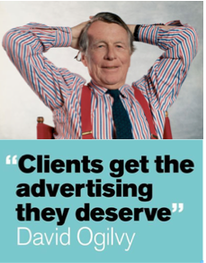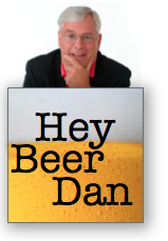There were other unnerving indications. The new guy was arriving from outside the company. His long string of past successes-- each time working with some other big ad agency-- did little to stifle my butterflies. Maybe most unsettling of all, he had no beer experience.
A new philosophy
In the end, none of it mattered. Because what he did possess was a clear philosophy of advertising. And he was passionate about it. He had seen it work across a number of business categories, from soap to orange juice. And he fully intended to see it drive our advertising for Coors Light.
Simply put, he believed advertising worked when it imparted some product truth that would cause people to be interested enough to try the brand. Advertising that didn't build the business wasn't worth running, he said. Soft "image advertising" -- quite popular at the time, especially for beer brands-- was dead on arrival. Nor would he approve ads that simply entertained, no matter how in vogue they were with advertising creative types. Any "fun" in our ads had to help bring the product's distinctiveness to life. None of this was negotiable.
To say that our getting-to-know-the-man learning curve was steep would be an understatement. He was opinionated, sometimes breathtakingly direct, and quick to judge. He didn't suffer fools, as the saying goes.
Even after we replaced a few creative directors who were vehemently opposed to change, it still took our agency team a number of tries before we finally brought his philosophy into the work we presented. And only then did we get his approval for a new Coors Light campaign.
| | |
Another new philosophy
In this new guy's view, making Coors Light "cool" was the simple goal. His philosophy-- though he would never articulate it in so many words-- was equally simple. He was addicted to buzz. He wanted hip, edgy, talked-about advertising. The ad agency team I led would either deliver that sort of work, or there'd be a new agency.
Against my own better judgement (but with a strong sense of self-preservation), we set to work, and pretty quickly delivered the sort of advertising he wanted. For many creative people, "hip and edgy" with no other requirements, amounted to "creative freedom." Developing ideas like that was easy. The only product-differentiating fact allowed in the ads was the somewhat cryptic "cold down easy," a brief after-thought he allowed as a sop to me. Otherwise, unlike the Tap the Rockies ads, any beer brand could've run these commercials. Fun times. Hot music. Parking-lot football. Pretty girls, not least of all the buzz-commanding "twins."
| | |
Before very long, the comely twins, wild partying, lyrical wingman and other such ad tricks failed to generate much buzz. "Cool" went cold, as it invariably does. Worst of all, sales results soured so badly, Coors Light surrendered its ranking back to Miller Lite. Before it could reach its third season, the "Rock on" advertising disappeared, and so did the marketing guy who had championed it. He departed the company without ceremony.
Some possible lessons-learned from all this?





 RSS Feed
RSS Feed
